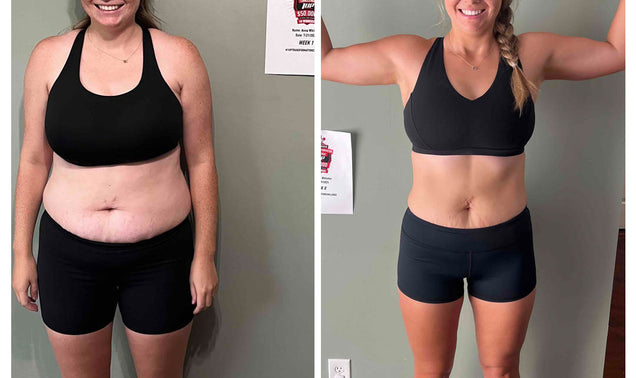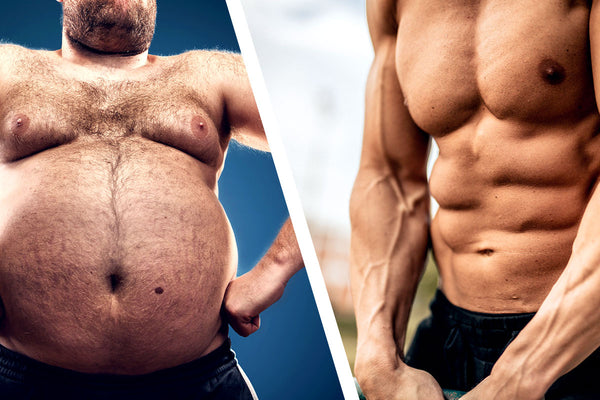There’s no hormone more often associated with masculinity, muscle mass, or aggression than testosterone. And it doesn’t require a PhD in endocrinology to understand why -- testosterone is one of the primary drivers of muscle growth in the human body.
With healthy testosterone levels, an individual can:
- Build muscle and lose fat more quickly
- Have greater energy
- Feel more confident and assertive
- Enjoy more libido (and all the perks that come with it!)
Basically, when a man’s testosterone levels are at an optimal level, life is better.
However, testosterone levels can vary greatly from one individual to another. Some have sky-high T-levels while others have testosterone levels close to the floor level.
What’s more, a man’s natural testosterone level peaks around age 30 and then begin a slow, steady decline with each passing year. In fact, the average male will experience a drop of 1-2% of their natural testosterone production per year as they age.
Why is this a cause for concern?
Well, low testosterone levels are linked to reduced libido, low energy, fatigue, and poor concentration. Beyond that, low testosterone also hinders muscle gain and increases the chance for muscle loss and fat gain!
In other words, if you are a man who is trying to build muscle or lose fat, the amount of testosterone in your system (or lack thereof) can significantly impact your results.
Testosterone Levels and Fat Loss
Researchers have documented an interesting link between testosterone levels in men and body fat percentage. The higher an individual’s testosterone levels, the leaner he was.
The opposite was also true, individuals with lower testosterone levels were fatter.
In fact, obese men have 30% lower total testosterone levels compared to their lean counterparts.[1] And, the scientific community also believes that low testosterone levels are an independent contributing factor to obesity.[2]
This presents an interesting dichotomy -- low testosterone levels cause weight gain in men, and excessive body fat causes low testosterone.
Researchers aren’t exactly sure why this is, but they do know that testosterone does play a role in fat metabolism, where it helps men burn fat more efficiently. Additional research indicates that testosterone also may inhibit the creation of new fat cells.[3]
It’s also worth noting that overweight individuals tend to have higher estrogen levels than lean men. The reason for this is that obese subjects have increased aromatase activity, which irreversibly converts testosterone to estradiol.[4] This leads to decreased testosterone levels and increased estrogen levels.
The bottom line here is that if you want to maximize your natural testosterone levels, you do not want to be carrying around excess body fat.
Testosterone and Muscle Building
Above we mentioned that testosterone makes the muscle building process easier, but according to the latest research, simply having high T levels doesn’t guarantee greater muscle growth.
There’s also the matter of your androgen receptors to consider.
Why are androgen receptors important?
Well, for testosterone to be able to exert its anabolic effects in the body it needs to be able to interface with our muscle cells. It does this through our androgen receptors.
When testosterone binds to androgen receptors it signals muscle cells to increase muscle protein synthesis, which leads to muscle growth.
Based on this, you can see that simply having high testosterone levels doesn’t automatically mean you’ll have better muscle growth. Your body also needs to be able to access and utilize that testosterone, which is where androgen receptors come into play.
Research has shown that individuals with more androgen receptors (not necessarily the highest testosterone levels) build the most muscle.[5]
Therefore, the path to greater gains is three-fold:
- Healthy testosterone levels
- Properly functioning androgen receptors
- Low body fat
This scenario puts the body into maximum muscle-building mode.
And you can achieve this optimal mass-gaining environment through a mix of diet and exercise, as proper nutrition is paramount to keeping body fat in check. And, weight training has been shown to increase both the number and sensitivity of androgen receptors.
That just leaves good ole’ Mr. T (testosterone) to deal with.
1UP Nutrition Pro Test Max is a fully transparent natural testosterone support supplement specifically created for men looking to build greater muscle and strength. Pro-Test Max has been scientifically formulated to enhance free testosterone levels to help you build muscle and strength.
With greater testosterone levels not only will you perform to the best of your abilities in the gym (and the bedroom), you’ll also recover faster, experience greater cognition, and a heightened mood!
Click here to learn more about Pro-Test Max and how it can help restore the alpha male in you!
References
- Tajar A, Forti G, O’Neill TW, Lee DM, Silman AJ, Finn JD, Bartfai G, Boonen S, Casanueva FF, Giwercman A, et al. Characteristics of secondary, primary, and compensated hypogonadism in aging men: evidence from the European Male Ageing Study. J Clin Endocrinol Metab. 2010;95:1810–8. doi: 10.1210/jc.2009-1796.
- Corona, G., Monami, M., Rastrelli, G., Aversa, A., Tishova, Y., Saad, F., … Maggi, M. (2011). Testosterone and metabolic syndrome: a meta-analysis study. The Journal of Sexual Medicine, 8(1), 272–283. https://doi.org/10.1111/j.1743-6109.2010.01991.x
- Singh R, Artaza JN, Taylor WE, et al. Testosterone inhibits adipogenic differentiation in 3T3-L1 cells: nuclear translocation of androgen receptor complex with beta-catenin and T-cell factor 4 may bypass canonical Wnt signaling to down-regulate adipogenic transcription factors. Endocrinology. 2005;147(1):141–154. doi:10.1210/en.2004-1649
- Cohen, P. G. (2008). Obesity in men: the hypogonadal-estrogen receptor relationship and its effect on glucose homeostasis. Medical Hypotheses, 70(2), 358–360. https://doi.org/10.1016/j.mehy.2007.05.020
- Morton, R. W., Sato, K., Gallaugher, M. P. B., Oikawa, S. Y., McNicholas, P. D., Fujita, S., & Phillips, S. M. (2018). Muscle Androgen Receptor Content but Not Systemic Hormones Is Associated With Resistance Training-Induced Skeletal Muscle Hypertrophy in Healthy, Young Men . Frontiers in Physiology . Retrieved from https://www.frontiersin.org/article/10.3389/fphys.2018.01373






